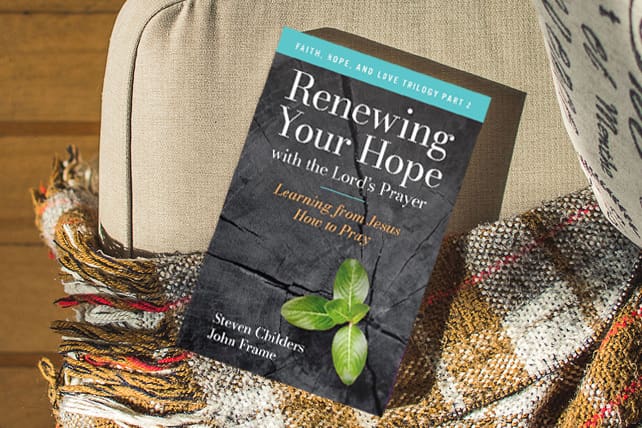“Through faith in Christ, we’re adopted into the life of God’s family. God the Father becomes our Father, and God the Son becomes our elder brother. We who were once enemies of and strangers to God are now in the high position of being his own beloved children. Paul writes, ‘You have received the Spirit of adoption as sons, by whom we cry, ‘Abba! Father!”‘ (Rom. 8:15).” (46)
“To be considered right with God the Judge is wonderful, but to be adopted, loved, and cared for by God the Father is even greater.” (46)
“To hallow God’s name means to set God apart and honor him for who he is in the fullness of his attributes and for what he does in the creation, redemption, and restoration of all things in Jesus Christ by his Holy Spirit. God’s name is hallowed when he is exalted and when he receives the honor and glory that he alone deserves as the Creator, Redeemer, and Restorer of all things in Christ.” (49)
“The final phrase, ‘on earth as it is in heaven’ (Matt. 6:10), should be seen as a culmination of the first three petitions. Therefore, we are to pray that our Father’s name would be hallowed on earth as it is in heaven by causing his kingdom to come and his will to be done on earth as it is in heaven.” (65)
“When Jesus returns as King, he will fill the earth with God’s glory by bringing everything on earth in subjection to the Father’s will, including death and Satan….In the meantime, Jesus instructs his followers to long for and pray for the time when God will fulfill his promise to return the fullness of his kingdom on earth forever—by asking our Father in heaven to honor his name by causing his kingdom to come” (69)
“God’s will is described in two ways in Scripture. Theologians refer to these as “the two wills of God”—his decretive will and his preceptive will. God’s decretive will describes his sovereign and mysterious purposes at work in the world through which he ordains everything that comes to pass. God’s preceptive will describes God’s revealed moral instruction in the Bible that helps us know God’s heart and desires.” (71)
“In the petition for daily bread, Jesus teaches us how to trust in our heavenly Father to give us what is necessary each day to carry out his mission.” (85)
“There are two sets of petitions in the Lord’s Prayer. The first set is vertical, focusing on God, in which we ask for our Father’s name to be hallowed, for his kingdom to come, and for his will to be done on earth as it is in heaven. The second set includes horizontal requests, in which we ask our Father for our daily bread, for our forgiveness, and for our deliverance.” (87)
“Our continual need for physical nourishment should remind us of our continual need for our Father’s provision of not just our food, but also all other things we need for life. We should always be asking our heavenly Father to give us good gifts, such as food, but all the while knowing that the ultimate gift that our Father promises us, which meets our greatest need, is himself by his Holy Spirit.” (88)
“The Greek word translated ‘forgive’ (ἀφίημι) conveys the idea of letting something go, giving something up, or releasing something. The word translated ‘debts’ (ὀφείλημα) refers to something that someone owes, that which is legally required.” (108)
“Forgiveness is not forgetting. It doesn’t rationalize or minimize injustice and sin. It means that we imitate Christ by taking on ourselves the painful debts of the people who sinned against us by releasing them from the just penalty they deserve for their sin against us. When we forgive those who sin against us, we follow Jesus, who paid our debt that he did not owe because we owed a debt that we could not pay.” (114)

